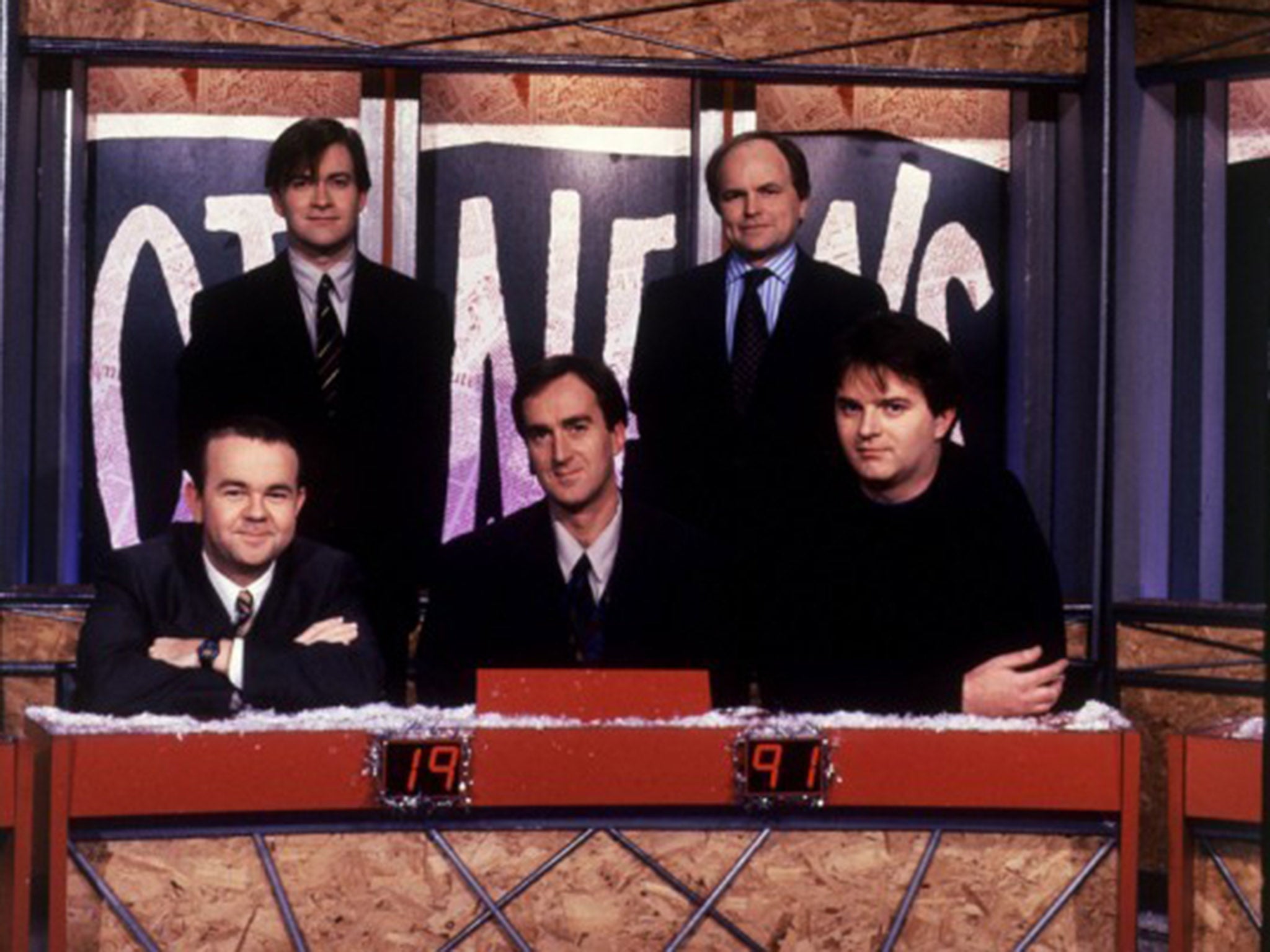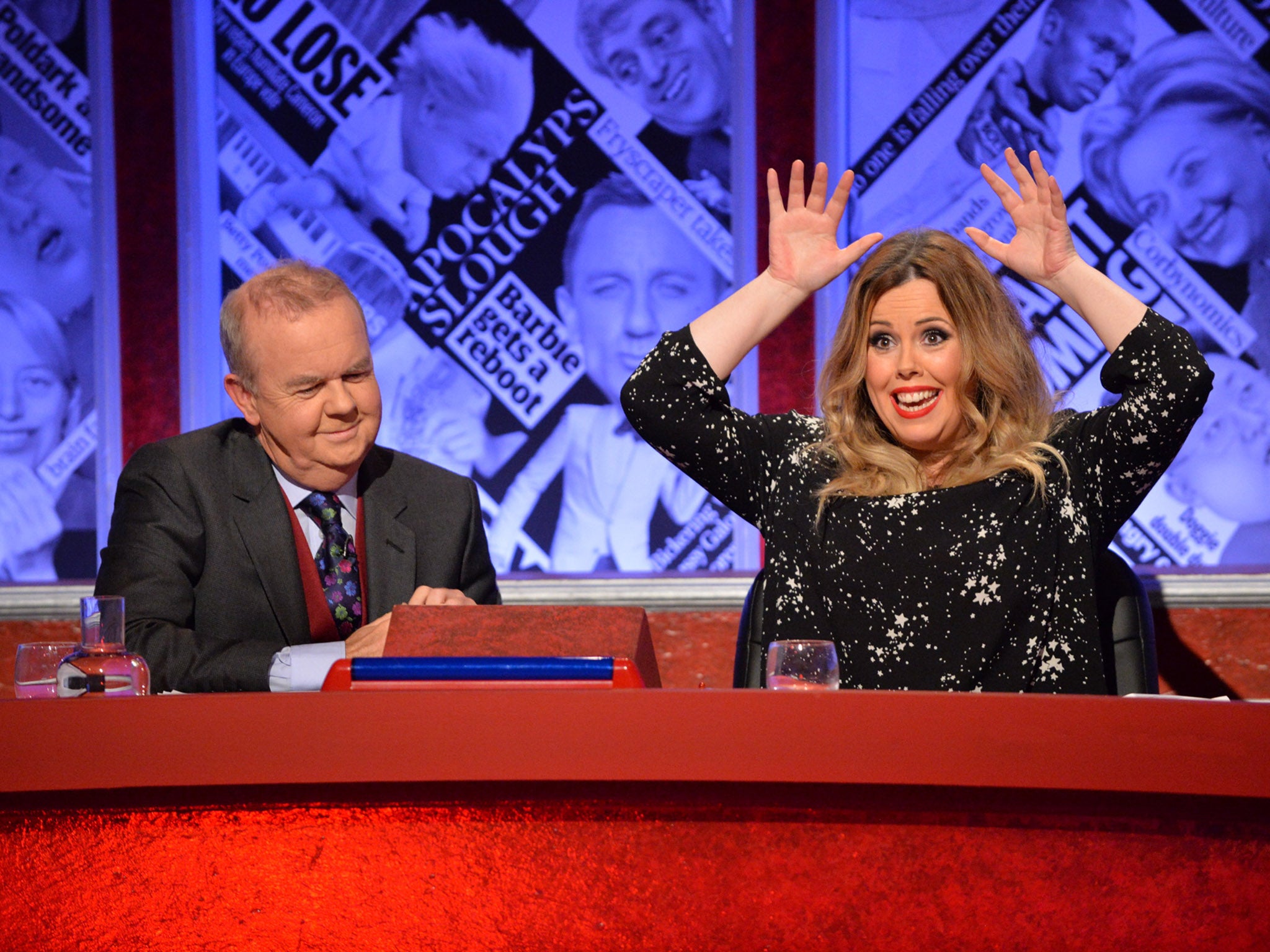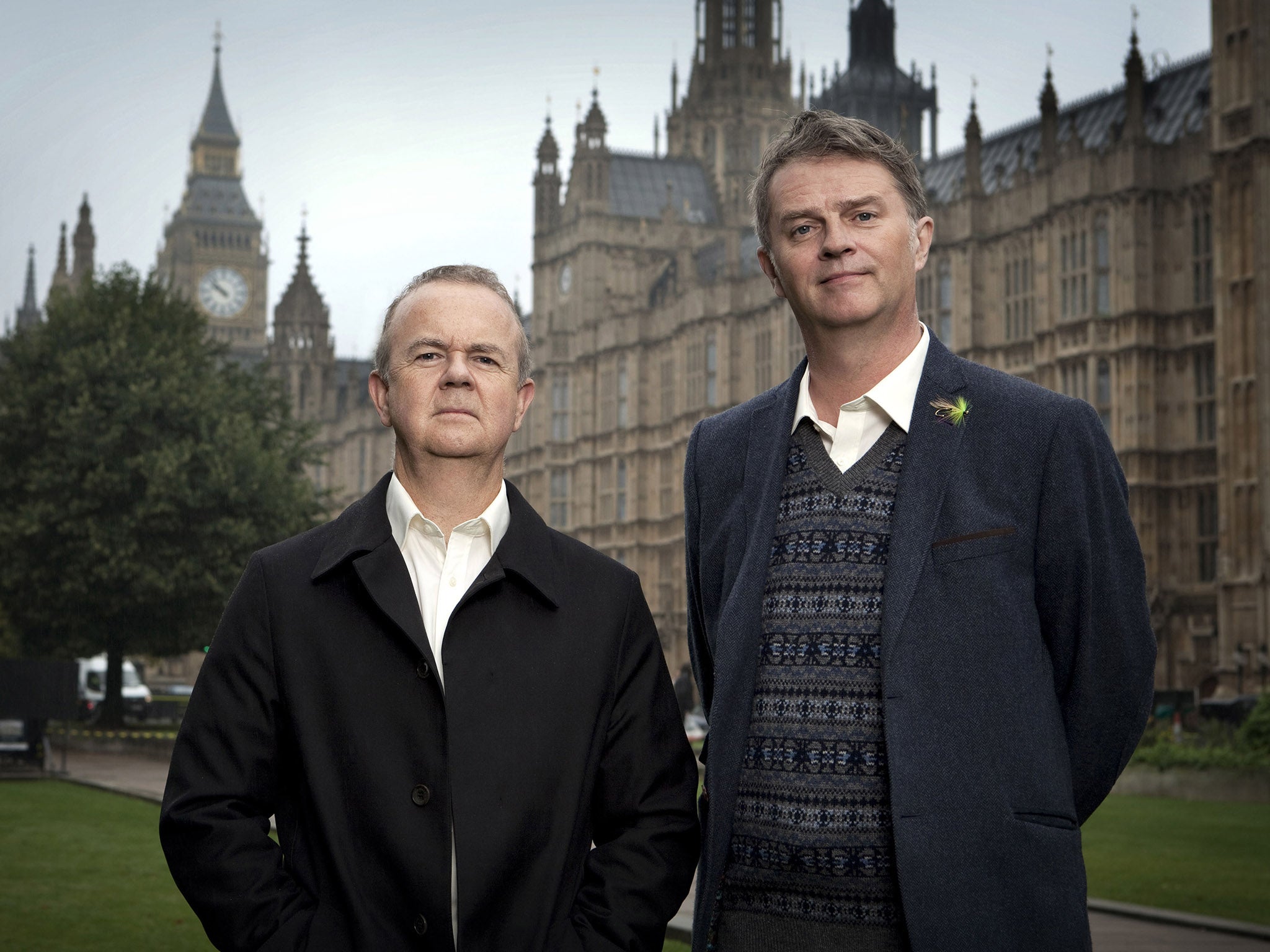Have I Got News For You just started its 50th series and it is time to pull the plug
British satire isn’t dead so much as sleeping - someone give me a nudge when it wakes up

Every long-running show eventually has its day. The plots start repeating, the jokes become stale, there’s a sense of everyone involved just going through the motions. Satirical news show Have I Got News for You is 25 years old and has just started its 50th series. It’s time to pull the plug.
That sounds harsh but when was the last time you thought: “You know what I really want to watch? Have I Got News for You”. Or found yourself talking about what happened on the show, still, days after the event. This was once a series that had everyone buzzing. It was event TV, something the whole family gathered together to watch. These days we’re all tuning into Gogglebox instead.
So what’s gone wrong? In part it’s an age thing. When HIGNFY first started in 1990 team captains, Paul Merton and Ian Hislop, were in their early thirties and not yet household names. Merton, then 33, was a stand-up comedian who got his break in 1988 with improvisation show Whose Line Is It Anyway? The 30-year-old Hislop had edited Private Eye for almost four years. Original host Angus Deayton, then 34, was a jobbing comedian and actor, best known for his part in sitcom One Foot in the Grave.
These were still young men, with fire in their bellies, desperate to make their names. And it showed in the fierce edge to their humour. Will Self, in a 2007 Evening Standard lament over the death of satire, memorably referred to the show’s original atmosphere as being “the very cockpit of British satire: a prototype of a kind of reality TV in which unwitting politicians were parachuted into a jungle full of backbiting repartee.” This was a programme that didn’t simply comment on the news but helped shape the political discourse, making unlikely stars out of Boris Johnson and Charles Kennedy and destroying those such as Piers Morgan who failed to perform well.

It’s a long way since those glory days. Deayton fell from grace in 2002 following a sex and cocaine scandal – the episode after the story broke remains one of the most uncomfortable (and amusing) in the show’s history – and ever since HIGNFY has relied on rotating guest hosts, on the quality of whom it tends to sink or swim.
This 50th series alone has seen one bad host (Jeremy Clarkson, who seemed nearly comatose except when sliding in the odd reference to his new show on Amazon Prime), one middling (Sue Perkins, who calmly kept the whole thing afloat) and one good (Charlie Brooker, who almost managed to wake Merton from the self-induced coma he appears to have slipped into in recent years). Notably, the best moments in all three episodes came not from captains or hosts but from two of the panellists: comedian Nish Kumar was likeable and funny, while Pointless’s Richard Osman was genuinely confrontational with Clarkson, bringing with him the echo of a long-lost and sharper age.
For HIGNFY used to be properly angry. Hislop, in particular, was seemingly unbothered as to who he went after, landing the BBC and Hat Trick Productions with a contempt of court notice in 1996 for a joke about Robert Maxwell’s sons, even if it was Merton’s more surreal moments, such as winning with a tub of lard as his partner in place of the absent Roy Hattersley that still sticks in the mind. Each episode felt fresh and relevant. In a pre-internet age this was the only place where you could hear jokes about what was going on in the country, told with savage style and fluid wit. It made the headlines as much as commented on them. Small chance of that happening now.

But this programme is really about the enthusiasm or lack of it that Hislop and Merton bring to their roles, and lately neither man seems especially happy. Merton, in particular, looks bored to death, as though this is some kind of purgatory he finds himself stuck in, his very own Room 101. Where once his flights of fancy soared, these days he’s resolutely earthbound. All too often content to raise an eyebrow in replacement for actual speech or fall back on an exaggerated double-take, supposed to signal his disbelief but in reality confirming his disengagement from his partner, the material, the show.
With Merton all but opting out, it’s left to Hislop to carry the whole shebang. And the basic problem with that is that a little of the Private Eye editor only goes so far. On a good day when he’s on the attack about something he believes in, for example in 2012 when Alastair Campbell hosted allowing Hislop to get in jabs about Blair and the Leveson Inquiry, he’s still entertaining, but all too often he’s straining. Without Merton puncturing his pomposity and giving him something to play off, he’s overly reliant on a good host and halfway decent guests or else those pugnacious putdowns topple into public school hectoring.

Watch Apple TV+ free for 7 day
New subscribers only. £9.99/mo. after free trial. Plan auto-renews until cancelled.
ADVERTISEMENT. If you sign up to this service we will earn commission. This revenue helps to fund journalism across The Independent.

Watch Apple TV+ free for 7 day
New subscribers only. £9.99/mo. after free trial. Plan auto-renews until cancelled.
ADVERTISEMENT. If you sign up to this service we will earn commission. This revenue helps to fund journalism across The Independent.
That doesn’t help given HIGNFY has always had something of a reputation as a boys’ club. Sandi Toksvig recently revealed that she was passed over as original host in favour of Deayton because of her gender, while as far back as 1995 viewers complained that Hislop and Deayton bullied panellist Paula Yates with Hislop repeatedly making jokes about her breast enlargement operation as Deayton smirked behind his desk.
Over the years a number of high-profile women have refused to go on the show with Caitlin Moran commenting at the 2012 Cheltenham Literature Festival that she turned it down because she had no desire to be the token female guest, her jokes edited out and her clips reduced to shots of her giggling at the men. She has a point. Efforts have been made to balance the panels – there has been a woman on every episode so far this series – but even in Brooker’s largely effective hosting stint it was notable how often the show descended into Ian and Charlie having a matey chuckle about something they both get. Jokes for the boys indeed.
Brooker’s stint also drew attention to one of HIGNFY’s biggest problems: it’s no longer the only show in town. Some such as Mock the Week are laddish enclaves stuffed full of competing egos and lacking the subtlety of HIGNFY at its best, but others such as Brooker’s own Screenwipe are far better at wielding a satirical scalpel to the week’s news. Meanwhile, the growth of Twitter means that major events are picked over, joked about and forgotten often within the space of hour, leaving weekly TV shows picking over the dregs after all the good gags have gone.
Then there are the Americans. As our capacity to watch TV widens so does our exposure to programmes across the world. Since HIGNFY began a new generation of TV watchers have learnt their satire from the furious likes of John Stewart and Stephen Colbert. It’s no longer enough to watch Hislop chummily josh with Clarkson about his lost BBC job when you can tune in and watch John Oliver excoriate both British and American politicians on Last Week Tonight.
That the British Oliver honed his skills on the American Daily Show under Stewart rather than over here is a terrible shame. For the one thing that might save HIGNFY is an overhaul and some kind of acknowledgement that satire, while not necessarily a young man or woman’s game, does need to be driven by some genuine anger and not just the cosy desire to josh around with your establishment mates. It’s possible, just about, to imagine a sharper version of the show with Hislop and Merton released from their duties and new presenters, as unknown as they once were, taking their place. Possible but sadly unlikely. Instead what seems more probable is that HIGNFY will trundle on with ever diminishing returns. Will Self was wrong in 2007: British satire isn’t dead so much as sleeping. Someone give me a nudge when it wakes up.
‘Have I Got News for You’ is on BBC1 on Fridays at 9pm
Join our commenting forum
Join thought-provoking conversations, follow other Independent readers and see their replies
Comments
Bookmark popover
Removed from bookmarks